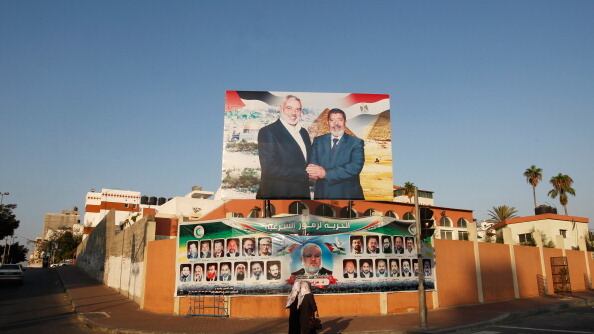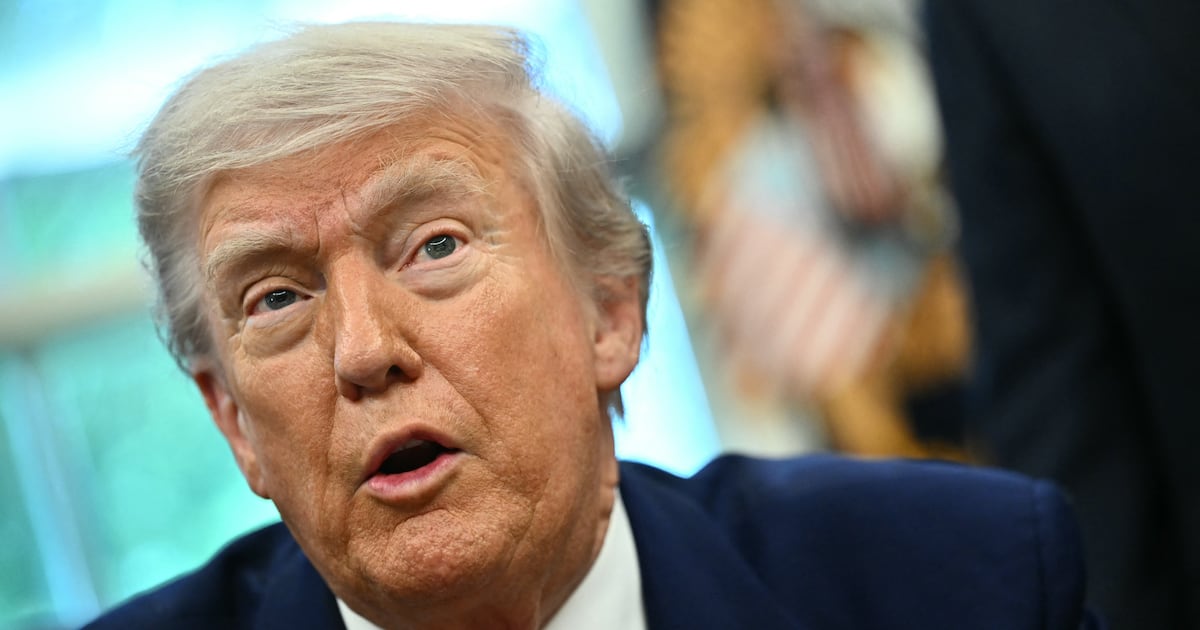Nearly a year ago, joyous processions and celebratory rounds of gunfire were heard throughout the Palestinian Gaza Strip in celebration of Mohammed Morsi’s electoral victory, and the Muslim Brotherhood’s ascension to power in neighboring Egypt. Hamas leaders and activists similarly welcomed the Muslim Brotherhood, hailing the election as a Hamas victory.Now, more than a year later, the situation in Egypt has shifted dramatically. Instead of dealing with the Muslim Brotherhood, their ideological parent, Hamas faces an Egyptian regime intent on sealing the Egypt-Gaza border.

A number of Middle Eastern experts assert that the new military government in Cairo seeks to overthrow the Hamas leadership in Gaza. Analysts also claim that an Egyptian regime that seals the Egypt-Gaza border could mean renewed hope for the Israeli-Palestinian peace process.
Avraham Sela, a professor at the Hebrew University of Jerusalem and author of The Palestinian Hamas, offered a much more sobering assessment. Though Sela sees the military government’s rise to power as a blow to Hamas and its ilk, “especially in terms of destroying tunnels and fighting Islamic and Bedouin terrorism,” he remains pessimistic in regards to the long-term effects of General Sisi’s new government.
According to Sela, isolating Hamas would not be a source of moderation and would not limit their means to strike at Israel, or elsewhere, in the long term. Although this may come as a surprising conclusion, his explanation was that a policy of crackdowns and isolation is something Hamas will never tolerate. “Without opening the Rafah checkpoint to Egyptian territory (or allowing more free navigation to and from Gaza), it means that the Gaza Strip becomes entirely dependent on Israeli supplies.”
A scenario of complete Hamas dependency on Israel could cause a violent response or shifting of alliances in Sela’s view, neither of which would bode well for Hamas’ containment or the peace process. In the short term, “violence might be used to force Israel and Egypt to allow more open borders of Gaza,” while in the long term, “Hamas would try to mend fences with Iran to ensure a renewed alliance with a major regional power, now that it cannot count on Egypt anymore.” The latter possibility is especially worrisome.
As terrorism expert Matthew Levitt has noted, Iran is known to employ a “performance based” approach to their aid. Hamas’ consistently radical ideology might well be accompanied by rewards in the form of weapons and training for attacks.
A shift towards Iran would also mean less of an opportunity for more moderate voices and less pressure to influence Hamas, or at least Hamas’ external political leadership.
Hamas’ friends, and those countries that host Hamas’ external political leadership, are certainly not models of Western-style democracy. However, they include Turkey, a member of NATO, and American allies and trade partners, such as Saudi Arabia and Qatar. This group stands in stark contrast to an isolated Iran, which is less prone to leverage by moderate forces.
Those who wish for a weakened Hamas, or gains in the peace process due to Egypt’s new reality, may have to keep waiting. Still, that does not mean effective containment of Hamas is a hopeless enterprise. While Egypt’s new government may provide short-term respite, an effective long-term solution remains a possibility. That solution would come in the form of a deal with a true moderate, Palestinian leader Mahmoud Abbas.





